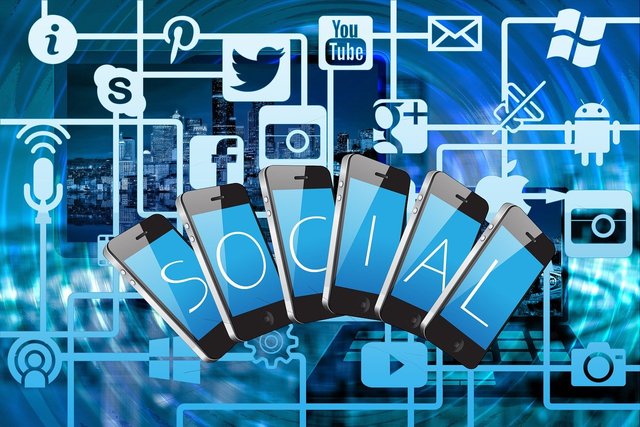The wrong use of social media on our real life
The image of the Matera professor is depopulating on the web, who during the passage on the street by the representatives of the G20 committed a recurring natural gesture during particularly hot and sultry days: looking out on the balcony of the house without his shirt. His physique certainly not slender, made it fun and some Italian ministers greeted the man, perhaps even amused by his presence.
The photo immediately went viral and in a few hours my social media were saturated, as well as many other variations made with photo editing programs. Although the image was very funny, the reaction of the web was really exaggerated, exponential. In a few minutes an unknown retired professor, intent on reading books and relaxing as he has been doing for years, has become one of the best-known characters in Italy, with all the positive and negative effects of the case. Yes, because many users, so-called keyboard lions or haters, did not spare heavy comments against a man who did nothing different than what many of us do on a hot summer afternoon.

The ease with which we all tend to comment and judge people or things is worrying, having no respect for those in front of us. Why is it so important to judge others?
My opinion is that users have low self-esteem and want to focus attention on others, often in a negative light, directly and indirectly highlighting personal positives. Furthermore, there is a basic malice, a generational anger deriving from multiple factors that underlie all social unease. The new generations have a growing need for attention, both at the school level but above all at the family level. The new trend is to abandon children in front of videogames or mobile phones, not explaining to them the mechanism of social media, what is behind it, what are the advantages and disadvantages and what effects addiction can create.
Social media is a tool born for a healthy purpose: to bridge the distances between people but it has definitely transformed over time into a dangerous communication tool, in some cases pushing the boundary between reality and unreality and also causing victims among the teenagers.
It is necessary to pay the right attention to what we write and to the use of social networks, they must be an instrument of leisure and freedom, not of obsession.
Thanks for reading my post
ITA
Sta spopolando sul web l'immagine del professore di Matera il quale durante il passaggio in strada da parte dei rappresentanti del G20 ha commesso un gesto naturale ricorrente durante le giornate particolarmente calde e afose: affacciarsi sul balcone di casa senza la maglietta. Il suo fisico di certo non esile, ha reso la scenda divertente e alcuni ministri italiani hanno salutato l'uomo, forse divertiti anche loro dalla sua presenza.
La foto è diventata subito virale ed in poche ore i social media me erano saturi, oltre a molte altre varianti fatte con programmi di fotoritocco. Seppur l'immagine fosse molto divertente, la reazione del web è stata davvero esagerata, esponenziale. In pochi minuti uno sconosciuto professore in pensione, intento a leggere in libro e rilassarsi come è solito fare da anni, è diventato uno dei personaggi più noti in Italia, con tutti gli effetti positivi e negativi del caso. Già perché molti utenti, così detti leoni da tastiera o haters, non hanno risparmiato pesanti commenti nel confronti di un uomo che non ha fatto nulla di diverso rispetto a quello che molti di noi fanno abituali in un caldo pomeriggio d'estate.
La facilità con cui tutti noi tendiamo a commentare e giudicare le persone o le cose è preoccupante, non avendo rispetto per chi abbiamo di fronte a noi. Perché è così importante giudicare gli altri?
La mia opinione è che gli utenti hanno poco autostima e vogliono incentrare l'attenzione sugli altri, spesso sotto una luce negativa, mettendo direttamente e indirettamente in risalto gli aspetti positivi personali. Inoltre di fondo vi è una cattiveria di base, una rabbia generazionale derivante da molteplici fattori che hanno alla base di tutto il disagio sociale. Le nuove generazioni hanno un crescente bisogno di attenzioni, sia a livello scolastico ma soprattutto a livello famigliare. La nuova tendenza è abbandonare i bambini davanti ad un videogames o ai cellulari, non spiegando loro il meccanismo dei social, cosa vi è dietro, quale siano i vantaggi e gli svantaggi e quali effetti può creare la dipendenza.
I social media sono uno strumento nato per uno scopo sano: unire le distanze tra la gente ma si è decisamente trasformato nel corso del tempo in un pericoloso strumento di comunicazione, spingendo in alcuni casi il limite tra realtà e irrealtà e causando anche vittime tra i teenagers.
È necessario porre la giusta attenzione a ciò che scriviamo e all'utilizzo dei social, devono essere uno strumento di svago e di libertà, non di ossessione.
Grazie per aver letto il mio post
Condivido completamente le tue riflessioni, come dici tu da strumento utile si sta trasformando in una ossessione, e la cosa più grave è che per molti è l'unico modo di interagire con gli altri, come se si sia persa la capacità di stare insieme e confrontarsi.
E' vero, quando è arrivato facebook da noi, è riuscito a riunire persone che da tempo si erano perse di vista, ha accorciato davvero le distanze. E' stato bello.
Poi come ogni cosa senza libretto delle istruzioni, ci siamo arrangiati e oggi ci ritroviamo a subire passivamente tutto quello che circola nel web.
Io da tempo ho smesso di usare i vecchi social dove vince soltanto il marketing spudorato e spietato che ci propina qualsiasi cosa anche le fake news.
Speriamo che le nuove generazioni riusciranno a liberarsi da questa dipendenza..
Eh già, ahimè penso che le future generazioni vivranno un'evoluzione dei social attuali. Non so cosa ci aspetterà, ma sarà difficile per i nostri figli